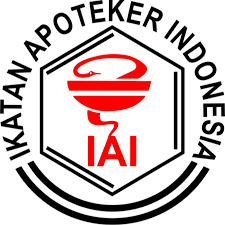Focus and Scope
PHARMACON will provide recent studies, surveys, and literature reviews on all aspects of pharmaceutical sciences, including pharmacology, pharmacokinetic, technology of formulation, excipient optimization, extract and herbal standardizations, pharmacological activity determination on natural sources, drug synthesize and development, molecular biology, antibiotic screening, metabolite profiling and quantification, clinical pharmacy, health and environmental issues in each edition. It will publish communications, full papers, accounts and reviews covering the full breadth of chemistry, biochemistry, biotechnology, pharmacology and all the pharmaceutical scopes.
Features and Benefits:
- Wide coverage of pharmaceutical aspects
- High quality papers, communications, letters, accounts and reviews
- Distinguished editorial board
- Electronic submissions
- Electronic supplementary and supporting information
- Free PDF reprints
- Free email alerting service
- Essential reading for all pharmaceutical aspects worldwide
Section Policies
Articles
Peer Review Process
All papers for publishing in Pharmacon: Jurnal Farmasi Indonesia are fully peer-reviewed. We only publish articles that have been reviewed and approved by highly qualified researchers with expertise in a field appropriate for the article. We used a double-blind peer-reviewing process. Detailed information about the flow of the manuscript submission (author) to the acceptance by the editor is shown in the following figure.

The description of the review process flow is as follows:
- Authors submit the manuscript through an online journal system.
- The Editor-in-Chief (EIC) will check the feasibility of the topic for possible publication. The suitable manuscript will be submitted to the editors for further processing, whereas the unsuitable manuscript will be rejected.
- The Editor will check the completeness of the provisionally accepted manuscript based on the guideline for authors, adherence to the journal’s template, adequacy of references, originality (check on potential plagiarism issues), and accuracy of language. The manuscript that meets the journal format and requirements will be forwarded to a minimum of two national or international reviewers under a double-blind process. The manuscript that did not meet the requirements will be sent back to the author(s) for revision.
- The manuscript will be reviewed by at least two national or international experts. It takes 4-8 weeks depending on the promptness of the reviewers in providing feedback.
- The EIC/Editors will notify the author that the manuscript may be published without revision, sent back to the author(s) to perform minor revisions or major revisions, or may also be rejected based on reviewers' comments. For a minor revision, the author(s) are requested to submit the final version of the manuscript with the required changes. For a major revision, a final version of the manuscript will be resubmitted to the peer-reviewers for re-evaluation. In this case, the peer-review process begins anew (second round review). The EIC/Editors approve the manuscript for publication if no further changes are necessary.
- The accepted manuscript will be forwarded by Editors to the production division for editing, layout, and other requirements for publishing. The final version will be sent to the author(s) for proofreading. The manuscript will be published online as soon as no more changes are needed and has been approved by the author.
The editor and reviewer will not disclose any information about a submitted manuscript to anyone who is not concerned during the review process.
Publication Frequency
Pharmacon: Jurnal Farmasi Indonesia publishes its issue twice a year, around June and December.
Open Access Policy
This journal provides immediate open access to its content on the principle that making research freely available to the public supports a greater global exchange of knowledge.
Archiving
This journal utilizes the LOCKSS system to create a distributed archiving system among participating libraries and permits those libraries to create permanent archives of the journal for purposes of preservation and restoration. More...








